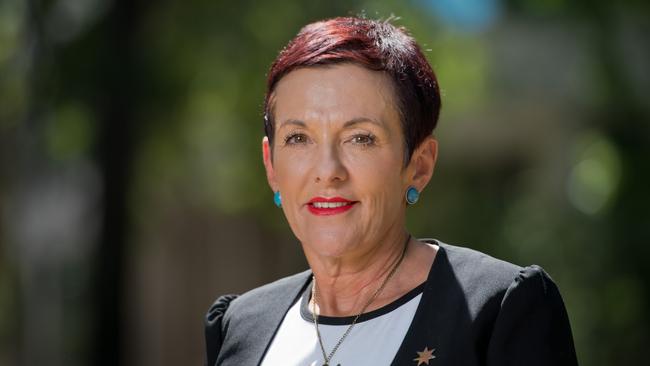
Accordingly there was celebration on Tuesday when Australian Small Business and Family Enterprise Ombudsman Kate Carnell demanded a “fair go” for the sector in taxation.
And her “centre piece” recommendation, if backdated, would approximately halve the $21bn that small business supposedly owes the Australian Taxation Office.
Under the current system, the ATO devises assessments that are not only immediately payable but carry interest and penalties from day one.
If small enterprises want to enter the elongated and unfair ATO appeal processes, then on every day the appeal penalties and 7 per cent interest are compounding. They often amount to many times the original claimed debt.
Carnell says that no interest and penalties should apply until the appeal process is completed.
The tax office conceals its interest and penalty claims, but it is believed that they represent about 50 per cent of the $21bn. And this is a horrible burden that threatens to bring down many of Australia’s employment-creating enterprises.
Sadly, the current internal ATO appeal process is often a shambles. As part of Carnell’s “fair go” recommendations, the ATO should expand and make permanent the “Small Business Independent Review” process pilot program, which finishes this month.
She believes that this process is working well and all small business taxpayers need to be notified of its existence.
My addition to Carnell’s recommendation is that the process must be made separate to the ATO via legislation.
If it is not, then the danger is that it will be sucked into the current “kangaroo court” appeals systems.
Carnell also correctly advocates for greater use of the Small Business Appeals Tribunal.
A third recommendation requires greater consideration — the proposed expansion of the role of the Administrative Appeals Tribunal. As it was originally conceived, the AAT could have been a wonderful tax appeal body, but it has become very legalistic and takes a long time to make decisions.
And, as pointed out by the full Federal Court, its performance in the “gold case” was appalling. It will need to be reformed if it is to have a greater role.
Carnell correctly isolates the fact that the tax act is incredibly complex and designed for large enterprises and not small ones.
To help small enterprises’ paperwork burden, she suggests that they have the option of netting their GST obligations and having them paid at the time of the transaction. The important part of this recommendation is that it is optional. It will not suit all businesses.
Carnell also recommends that the tax office be given the power to do the book work on employee deductions such as superannuation, childcare and even union fees.
That means that, in practice, the Australian Taxation Office would run the payroll for the small enterprise. At present, I don’t think the ATO has the systems to do that. It would certainly cut down paperwork, but it must be on an optional basis.
One of Australia’s greatest advantages is that we have some of the clearest legislation on whether a person is a contractor or an employee. Similarly, we are clear on how to define research. These two areas have become complex because the ATO, particularly in independent contracting, made up its own laws and ignored the parliamentary statutes.
Carnell recommends uniformity and clarity between the Fair Work Ombudsman in independent contracting and Australian industry in research and, to ensure this happens, recommends that where there is not agreement on interpretation, taxation penalties and interest charges cannot be applied to a small business taxpayer.
Carnell recommends making the Instant Asset Tax Write Off permanent at its current threshold of $150,000 and limiting the concession to only those assets purchased from an Australian registered business
One of the great oddities of the current taxation system is that the Inspector-General of Taxation and Taxation Ombudsman has great difficulty getting information from the ATO to make its review and assess the ATO’s performance. Carnell recommends that it be given wide access to ATO material instead of the current practice where the ATO drip-feeds information usually to protect itself from criticism.
Another important recommendation is that the ATO in most situations needs to challenge tax assessments within one year if they had been made via properly qualified people.
Australian small business culture is totally different to large corporations and the public service, so Treasury encounters considerable difficulty in understanding the mentality of these people and how they work. Yet they represent 98 per cent of businesses in Australia.
Carnell has made a series of recommendations to help Treasury, the ATO and the public service to become more acquainted with how the small business engine works.
She recommends that when they are passing small business tax legislation, they consult with participants particularly in regard to the way the legislation is implemented. All too often the parliament passes the legislation and works out the implementation later and, of course, it is a mess.
But the Morrison government has been one of the most pro-small and medium business government in Australian history. Its steps to promote fast payment and fair contracts are world class, but they will not have the required impact unless we also give small to medium business a “fair go” in taxation. Carnell’s report sets us on the right path.




For many years myself and others have drawn the nation’s attention to the unfair practices of the Australian Taxation Office in dealing with small and medium-sized businesses.